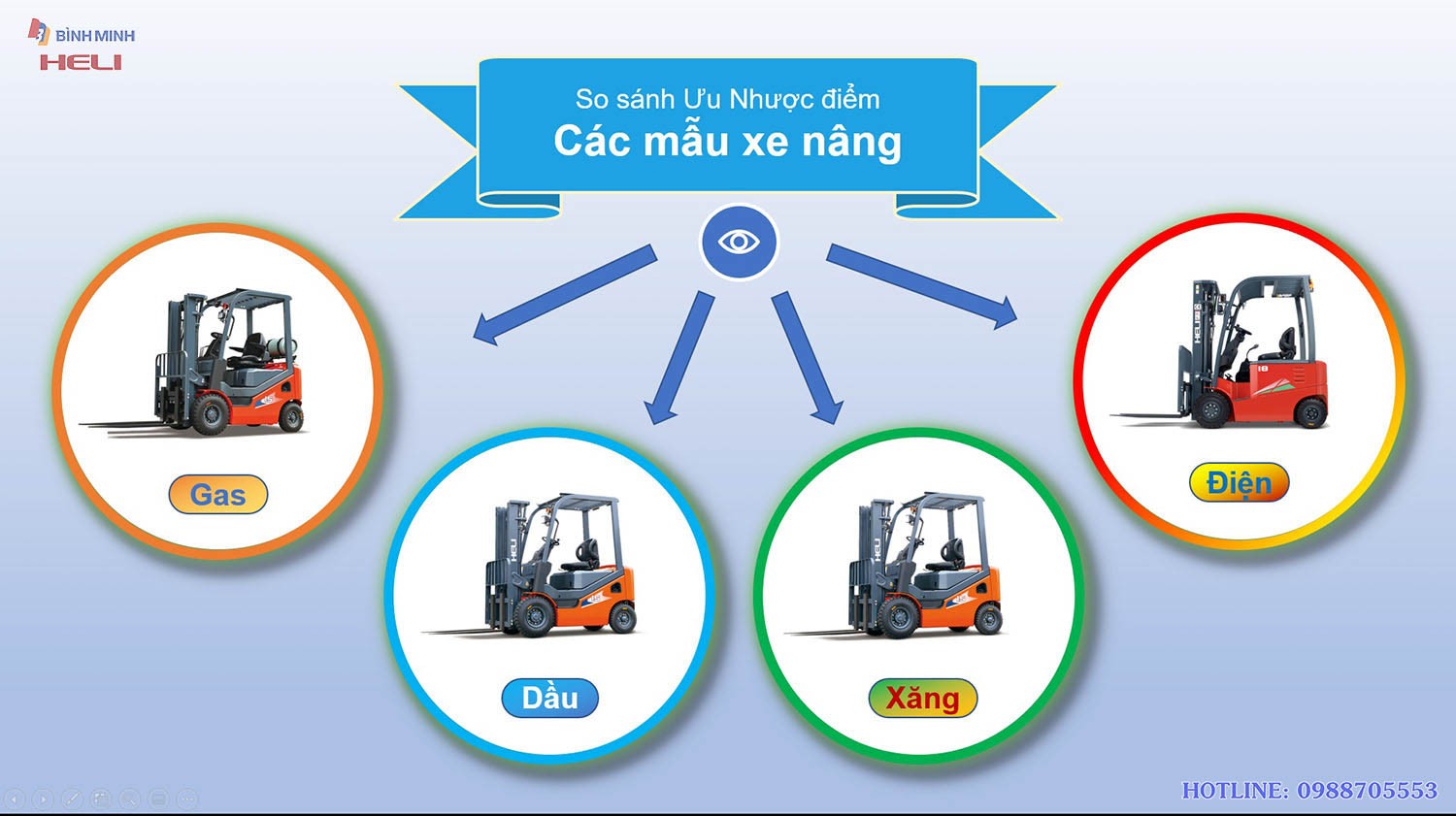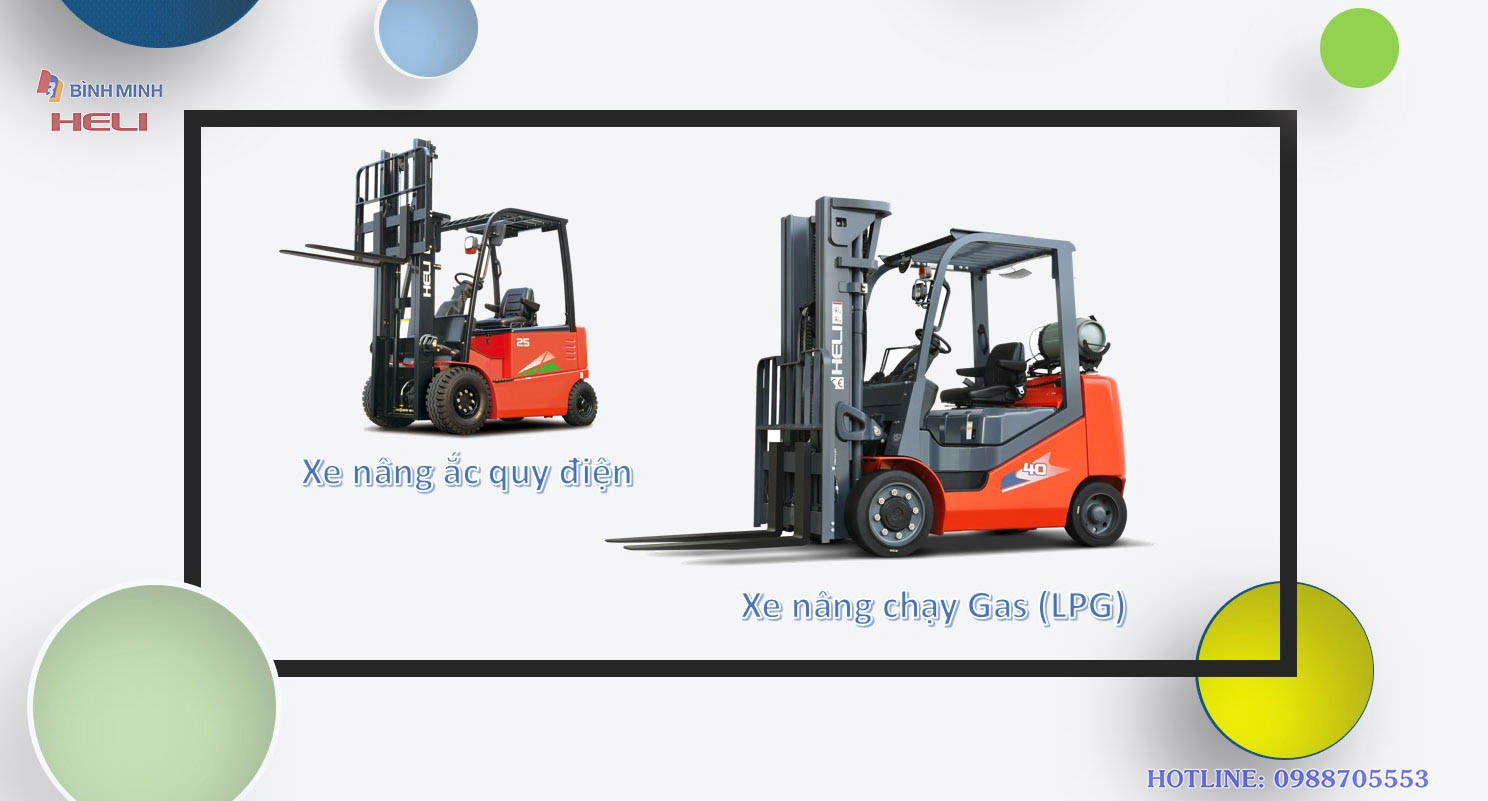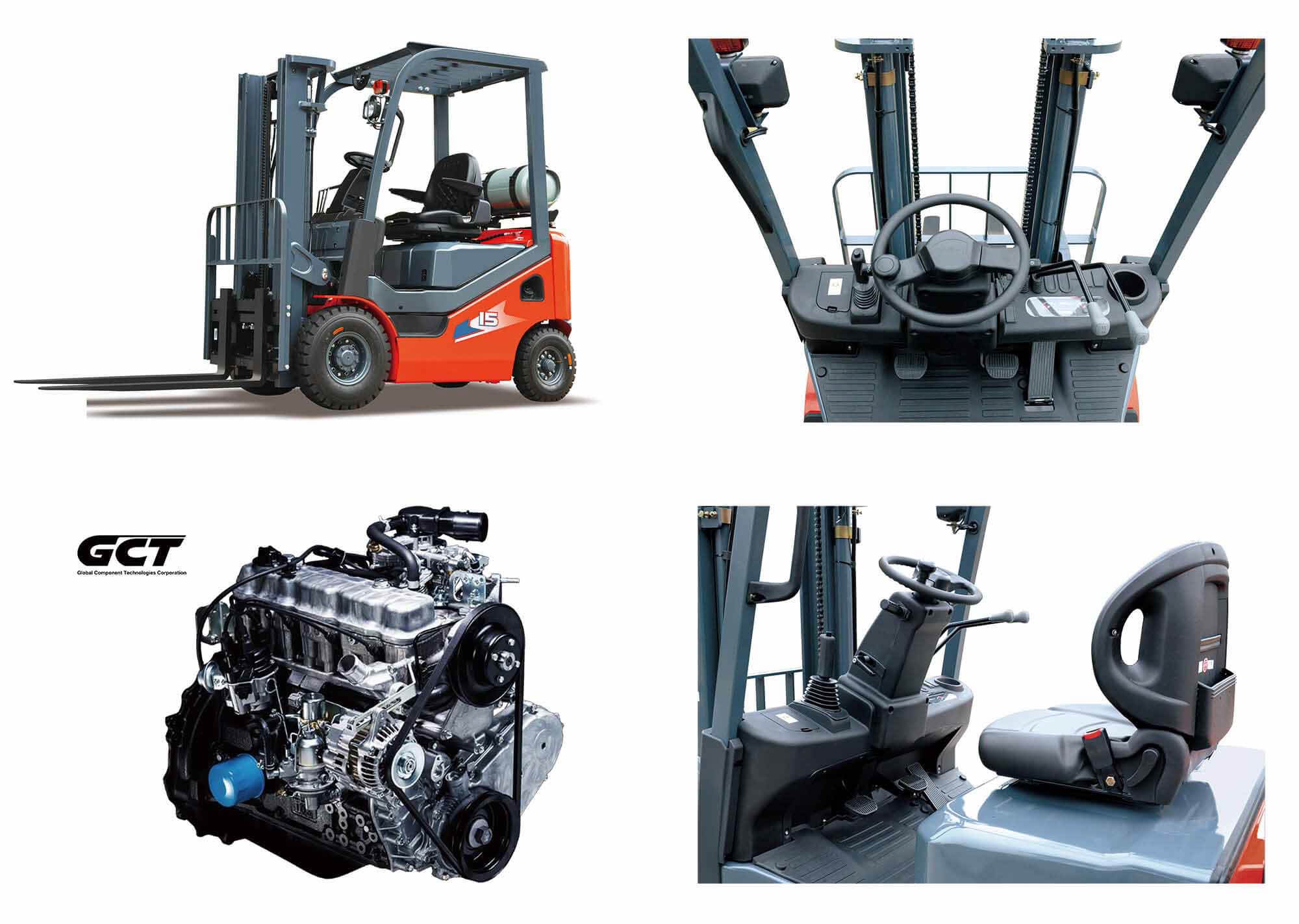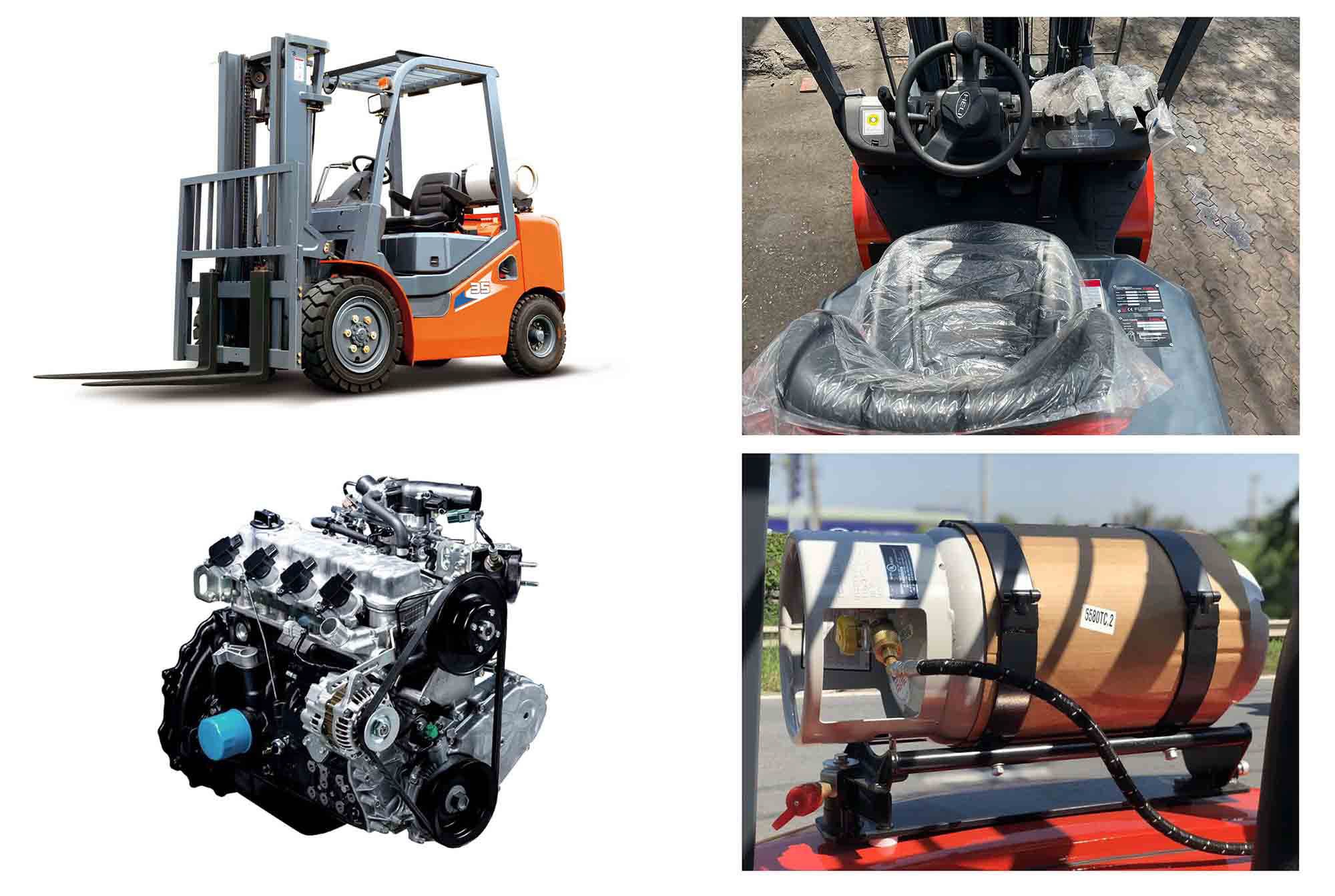Gas-powered trucks are increasingly becoming an attractive alternative for transportation businesses. But what are the advantages and disadvantages of this type of vehicle? What applications are they suitable for? This article will analyze gas-powered trucks in detail, compare them with other types of trucks, and provide information on popular gas-powered truck models in the market.
 Comparison of diesel, electric, gasoline, and LPG forklifts
Comparison of diesel, electric, gasoline, and LPG forklifts
LPG Trucks Compared to Other Types of Trucks
Compared to diesel trucks:
Advantages:
- Lower engine manufacturing costs.
- Simpler engine structure, lower maintenance costs.
- Higher engine RPM, greater power, faster acceleration.
- Cleaner emissions, quieter operation.
- LPG fuel is cheaper than diesel.
Disadvantages:
- Higher fuel consumption per unit volume.
- Lower work efficiency, weaker towing power.
- Less common in Vietnam, spare parts are harder to find.
Compared to gasoline trucks:
Advantages:
- Engine is less prone to sludge build-up, longer lifespan.
- More fuel-efficient (approximately 28% savings).
- Reduces emissions by up to 80%.
- Significantly reduces pollutants such as CO2, CO, NOx, and PM.
- Easily diffuses and mixes with air, faster vaporization rate.
Disadvantages:
- LPG supply and extraction locations are less common than gasoline and diesel.
- The quality of LPG from many suppliers does not meet standards.
- Liquefied gas is compressed at high pressure, posing a potential fire and explosion hazard.
Compared to electric trucks:
 Electric forklift and LPG forklift comparison
Electric forklift and LPG forklift comparison
Advantages:
- Continuous operation capability, no interruptions.
- Engine is less affected by temperature fluctuations.
- Repair and replacement costs for engine parts are usually cheaper.
- Engine parts are more common.
- Higher operating efficiency.
Disadvantages:
- Fuel consumption costs are many times higher than electricity costs.
- Larger and bulkier vehicle size compared to electric trucks in the same payload segment.
- Gas engines generate noise and emissions.
When Should You Use LPG Trucks?
 Different fuel options for forklifts: diesel, electric, gasoline, and LPG
Different fuel options for forklifts: diesel, electric, gasoline, and LPG
LPG trucks are a suitable choice if you need:
- High performance, continuous operation.
- Environmentally friendly operation.
- Long-term operational cost savings.
- More durable engine.
Why Are LPG Trucks Not Yet Popular?
Despite possessing many advantages, LPG trucks are still not popular in Vietnam due to:
- Users are not yet familiar with this type of vehicle.
- Awareness of the environmental benefits of LPG trucks is limited.
- Lack of clear government support policies and gas price reductions.
- Psychological concerns about legal procedures (which are not as complicated as many people think).
What is LPG Used for Trucks?
- LPG stands for Liquefied Petroleum Gas.
- The main chemical components are Propane (C3H8) and Butane (C4H10).
- Easily converts from liquid to gaseous state.
- Can cause fire and explosion if leaked under certain conditions.
Notes When Using LPG Trucks
- Use in environments with temperatures not too high.
- Avoid contact with electric sparks.
- Regularly check and clean fuel lines.
- Do not use fire or smoke during operation.
- Equip the vehicle with a fire extinguisher.
- Choose reputable LPG suppliers.
 Heli 1.5-ton LPG forklift
Heli 1.5-ton LPG forklift
 Heli 3.5-ton LPG forklift
Heli 3.5-ton LPG forklift
